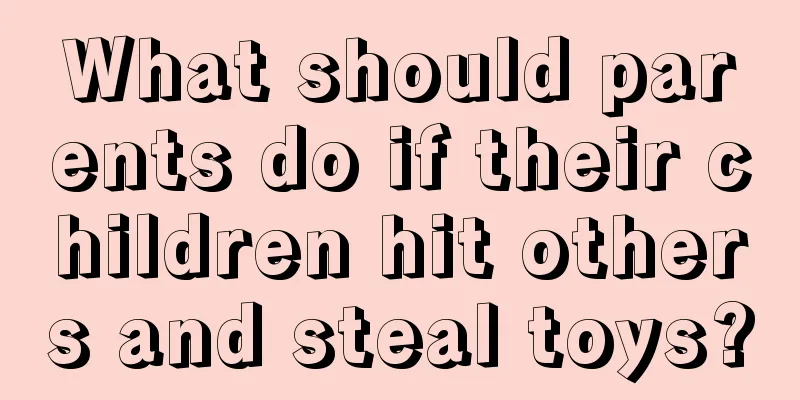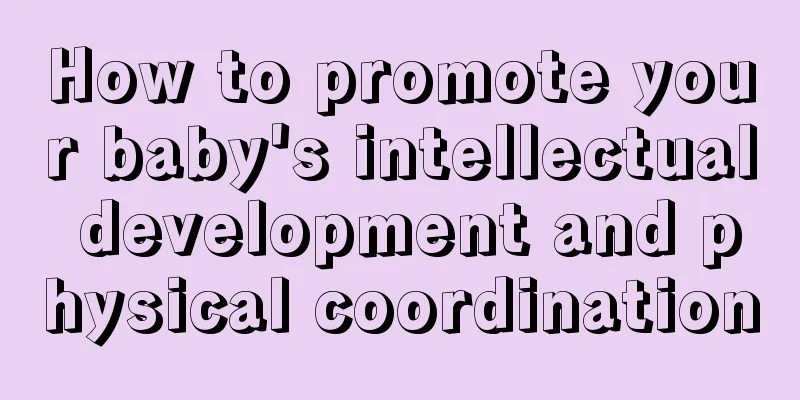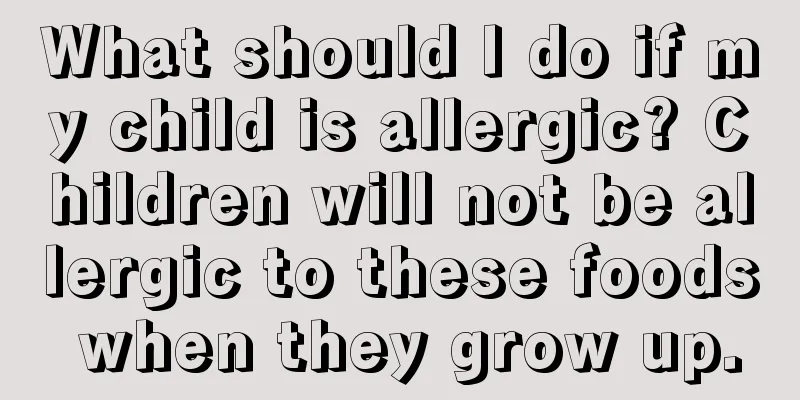What should parents do if their children hit others and steal toys?

|
How should we deal with disputes between children, such as snatching toys and hitting others? In the study group, when such situations occur, my view is that when a child may hurt another child, I will stop him. In other situations, parents will accompany and observe, and then judge the next step based on their own companionship and observation. Take a physical dispute between children as an example. When the incident happens, if the parents do not rush to intervene but just accompany and observe, the first thing that comes to their mind is often their own inner thoughts and turbulent emotions: How should they face the feelings of their children hitting others or being hit? For example, when an adult's child is pushed, hit or bitten, they may feel sorry for their child, angry at the child who hit them, think that the other parent did not teach their child well, or blame themselves for not protecting their child well. When an adult's child hits someone, they may feel: a little embarrassed towards the other parent (guilt), angry about why their child hits someone (blame), immediately remove the child from the scene (anxious), and try every means to prevent it from happening again (tense). Methods to maintain a balanced moodWhen dealing with disputes between children, I think the emotions of the adults mentioned above also need to be taken care of. Even if we adopt the method of not intervening in a hurry, if the adults themselves cannot settle their emotions, problems will arise over time. On the surface, everyone is not rushing to take action in the name of respecting the children, but undercurrents are surging beneath the surface, and a lot of grievances and anger are accumulated. For example, Xiaohua was a frequent hitter in a group. Many children had been hit by Xiaohua. The adults sometimes stopped him and sometimes didn't see it. When talking about this incident, the prevailing view in the group was that "hitting is just a transitional stage of growth" and "apologies are the least important." After this situation lasted for a while, the parents of several children who were often hit had some complaints and grievances in their hearts. Xiaohua's interpersonal relationships in the group were also a bit delicate. Other children would avoid him, and some parents even left the group because of this. In this example, the method of "not rushing to intervene" has failed. Are the study groups "letting the children go"? Or are those parents who are "grievances and complaints" too "tense"? I think neither. I think this happens because: 1. The members’ true feelings were not accepted by the group. Under the so-called “no rush to get involved” banner, these feelings could not be brought to the surface, so they had to flow everywhere, and the undercurrent was surging. 2. Everyone’s acceptable dose is different. Any mood of a parent needs to be taken care of and tolerated. The more a parent can manage (rather than ignore or suppress) emotions, the more accurately they can grasp their own acceptable dose. The acceptable dose is different for each person, and even for the same person, it may vary at different times. For example, when their children are beaten, parents will definitely feel distressed. Some parents can resist saying anything when seeing their children being slapped, but when their children are slapped twice within an hour, they will find it unacceptable. Some parents can be calm about pushing, but will be very angry about biting. For different situations or events, everyone has a different acceptable dose. However, only in the actual situation can we have a better grasp of our feelings and acceptable dose. This is what I have always emphasized before, that is, let things happen in the study group. Through events and situations again and again, we can get to know ourselves better. Respect and understand everyoneWhen looking at disputes between children, if parents take into account their own acceptable dose, then even if they are facing the same situation, there will be countless ways of understanding, because everyone has their own way of understanding. Here are a few possible ways of understanding: This is an inevitable phenomenon during the growth period. Whether your child hits others or is hit, you should treat it this way and then focus on the child's condition and needs. Disputes cannot be allowed to happen at all. Once they happen, it is difficult for adults to control their emotions. This happened in a study group before. A child was beaten and his father was very angry. He beat the child who beat him at the study site. It is acceptable for disputes to occur, but after they are dealt with, we hope that their frequency will be reduced in the future. It is acceptable for disputes to occur, but when it happens, I hope the person who beats others can greet the person who is beaten. In theory, I knew that there would be disputes, and I knew that I didn't need to rush in, and I didn't rush in when it happened. But afterwards, I always felt weird. For example, I felt sorry for my child and felt guilty for not protecting him well, and the parent who hit the child was worried about what the other parent would think. Every way of understanding needs to be respected because it is the starting point for any change and processing. Take care of your moodI have always believed that adults should first manage their own moods, understand their own "acceptable dose", and then be willing to try to let those around them understand. This way, when dealing with disputes between children, they can strike a balance between methods and moods. And most importantly, only by adopting methods that match your own "acceptable dose" can you truly feel comfortable in the parenting process, rather than deliberately maintaining the illusion of being an "enlightened parent." A truly open-minded parent is one who allows himself to make mistakes, is willing to make adjustments, and is willing to face his own mood and even mentality. A real person, when you take care of your own mood, will naturally have a corresponding method when facing disputes between children. Parents who come to the parent-child study group are parents who yearn for a better way of parent-child interaction and are willing to give up the (convenient and easy to use) methods of beating, scolding, threatening, intimidating, and luring. This is such a precious thought and a will full of love. Compared with most parents in society, it is completely different. You are already an open-minded parent. Parents with an authoritarian mentality can use corporal punishment to respond to any situation or mood without hitting their children. How natural it is. Parents who advocate not to use corporal punishment can even be criticized as laissez-faire. But if you are willing to not spank or scold your child, and want to pursue a more democratic and intimate parent-child relationship, how can you have three tricks to deal with your child, or five ways to make your child more obedient? When we encounter difficulties, don’t we all worry and try to understand what our current emotions are, practice expressing our emotions, and then try to understand the motivations and feelings behind the children’s behavior? How can these efforts be indulgence? How can they be not dealing with it? I think that parents who don't spank or scold their children are pursuing a more authentic and free life. When faced with difficulties, they will try to achieve an organic balance between mentality, emotions and methods. The same is true for dealing with disputes between children. Only after paying attention to and accepting your own emotions can you develop the method that suits you best. You may even need to review your mindset when interacting with your children, realize that you care too much about certain things, or cannot tolerate certain situations, and face your own (so solid) inner values and emotional interaction patterns with difficulty and painfulness. Accept yourself as you areYour efforts are invisible to those who hold an authoritarian mentality (without knowing it). They always want to discipline and change the behavior of others. They have difficulty in perceiving and expressing their own feelings. They are unwilling to face their own values deep in their hearts, and they cannot touch the hearts of children. Their mentality is like a hammer, and they see the behavior of children as nails, and they always feel that they have to hammer. When a dispute occurs between children, should it be resolved on the spot? Should an apology be made to the other party? There is no absolute conclusion. The so-called learning scene is not to ask you to accept certain rules, telling you that this cannot be done and that must be done, and then if you do not do it, they will say that you are too nervous and that you are not a good enough parent. No, that's not the case. If the so-called co-learning scene does not take into account the mood of each member, does not respect each other's values, and only provides methods without caring about your mood, then this is not co-learning, but a breeding ground for authoritarians and enslavers. The method must be discussed in the context of the situation. Everyone's mood must be taken into account, and it must be accepted that everyone has a different "acceptable dose", and then everyone can develop their own method. In the study group, regarding the disputes among children, I think that only by dealing with the emotions first can we properly deal with the situation. Adults’ own emotions also need to be taken care of and paid attention to! If your child is pushed by another child, you feel distressed. You are aware of the distress and then express it truthfully, saying to the other child: My child was pushed by you, and I feel really distressed, but I also want to know if you have encountered any difficulties? Isn't it the best example to set for children to be able to express your feelings so truthfully? If your child repeatedly snatches other children's toys, you feel very troubled. You realize this trouble and then say to the other parent: I am really sorry, this kind of thing has been happening recently. I have some observations and judgments about my child, but I am not very sure. Are you willing to tell me about your feelings and observations about my child’s behavior? Isn’t being able to express your own troubles so honestly the most genuine starting point for dealing with children’s conflicts? If you are willing to face and express your feelings honestly, and keep practicing this, your children will see it. I believe this is the best way to deal with children's disputes. Of course, this is just my opinion. The next time there is a dispute between children, you still have to start from your acceptable dose and use the method that you think is most suitable for the moment. |
<<: What should the dressing table not face?
>>: Why can't my 4-year-old baby call me dad? How can I teach my baby to speak?
Recommend
Why are women most attractive during ovulation?
According to a US study, women are most attractiv...
Sharing my personal experience on things not to do during pregnancy
Many people will tell us that we cannot do this o...
What to do if your baby can't crawl? Reasons why your baby can't crawl
Learning to crawl is one of the skills that babie...
Will the baby's spitted milk flow into the ears? What should I do if the baby's spitted milk flows into the ears?
Spitting up milk is a common phenomenon in babies...
How to cultivate children's emotional intelligence and 4 rules for cultivating relationships with the opposite sex
There are some people who look nice, but you don&...
Why do infants roll their eyes when they sleep? What are the precautions for babies to learn to swim?
Some babies roll their eyes when they sleep, whic...
Is it normal for pregnant women to have stomach pain? What should pregnant women do if they have stomach pain?
During pregnancy, many pregnant women experience ...
Can breastfeeding and bottle feeding be done at the same time? The difference between breastfeeding and bottle feeding
Nowadays, few mothers feed their children with fo...
How to treat indigestion in children? What to eat for indigestion in children
Usually children's stomachs are very fragile ...
Can pregnant women eat black chicken? It has high nutritional value
Pregnant women can eat black chicken. Black chick...
Baby's leg shape changes diagram Baby's leg shape development process diagram
After children start learning to walk, many paren...
The initial symptoms of postpartum depression. What is the probability of postpartum depression?
Postpartum depression is a psychological disease ...
Baby name naming method, baby girl name with nice meaning is recommended
Every parent wants their baby to have a nice name...
What causes back pain during mid-pregnancy? What causes fetal arrest?
Many pregnant women will experience back pain dur...
When should a child be weaned? What are the good ways to wean?
Dear mothers, do you know the correct time for we...









